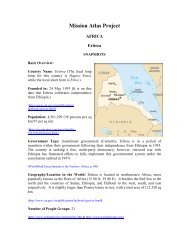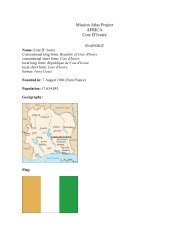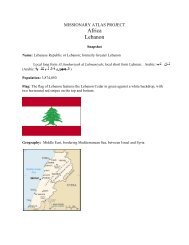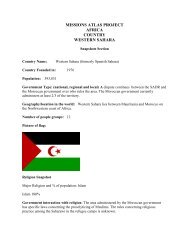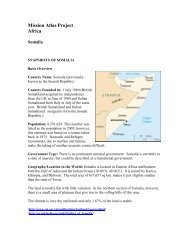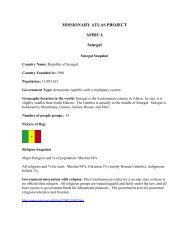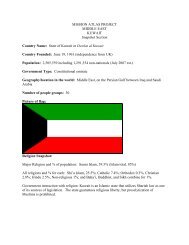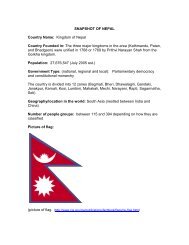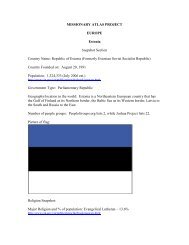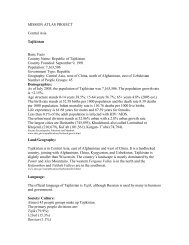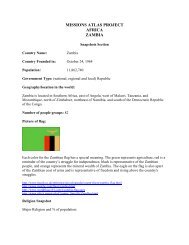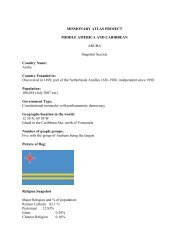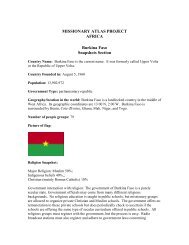Tanzania Profile.pdf - WorldMap
Tanzania Profile.pdf - WorldMap
Tanzania Profile.pdf - WorldMap
Create successful ePaper yourself
Turn your PDF publications into a flip-book with our unique Google optimized e-Paper software.
Gweno, Kigweno (42,665 in 2009)The Gweno people live beside Lake Jipe in the Kilimanjaro region along the border with Kenya.They are primarily Roman Catholic. Less than 2% of the Gweno people are evangelicalChristian. There are no Gweno translations of the Bible, the Jesus film, Gospel recordings orradio broadcasts available. Ethnologue.com reports that the Gweno language is almost extinct;people either use Swahili or are switching to the Asu language. There are Christian resourcesavailable in Swahili.Source: http://www.imb.org/globalresearch/downloads.aspSource: http://www.ethnologue.com/show_language.asp?code=gweSource: http://joshuaproject.net/peopctry.php?rog3=TZ&rop3=103611Source: http://www.worldmap.org/countryG.php?rog3=TZSource: http://www.peoplegroups.org/Detail.aspx?PID=1493214933Ha, Giha (1,170,235 in 2009)The Ha people live in the Kigoma region along the border with Burundi. Their practice oftraditional religion is predominant mixed with Islam. Less than 2% of the Ha are evangelicalChristian.Only portions of the Bible have been translated into Ha and that was in the early 1960s. TheJesus film is not available. There are a few Gospel recordings in their language, but no radiobroadcasts.Source: http://www.imb.org/globalresearch/downloads.aspSource: http://www.peoplegroups.org/Detail.aspx?PID=14933Source: http://joshuaproject.net/peopctry.php?rog3=TZ&rop3=103621Source: http://globalrecordings.net/langcode/haqSource: http://www.worldmap.org/countryG.php?rog3=TZSource: http://www.ethnologue.com/show_language.asp?code=haq14962Hadza, Hadzabe, Kindiga, Tindiga (315 in 2009)The Hadza people are hunter-gatherers who like to stay on the move. They typically do not buildany kind of permanent shelter and tend to move from place to place in search of food. Thelifestyle was common to many people groups in the past, but it is very rare in the 21 st century.Because of the more stable political borders around them, their movements are limited. They livemostly in the Manyara region around Lake Eyasi.The Hadza traditional religion is very minimalist. They do have stories about the creation of theworld around them, but they do not believe in life after death. There are very few religiousrestrictions. In fact, there are very few rules in their culture and even people who break thoserules face few consequences.




